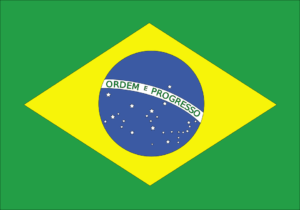
Location and Geography: Brazil is the largest country in South America and the fifth-largest in the world by both land area and population. It is located in eastern South America, bordering every South American country except Chile and Ecuador. Brazil features diverse geography, including the Amazon rainforest, the Pantanal wetlands, the Atlantic coastline, and the central highlands.
Capital and Major Cities: Brasília is the capital of Brazil, while São Paulo is the largest city and a major economic and cultural center. Other significant cities include Rio de Janeiro, Salvador, and Belo Horizonte.
Government: Brazil is a federal republic with a presidential system. The President of Brazil serves as both the head of state and government. The country has a bicameral legislature and an independent judiciary.
Culture and Diversity: Brazil is one of the most culturally diverse countries in the world, with a population influenced by indigenous, European, African, and immigrant cultures. Brazilian culture is known for its music, dance, and festivals, with samba, bossa nova, and the annual Carnival being iconic elements.
Education and Health: Brazil has a public education system that provides free education from primary to higher levels. The country also has a universal healthcare system known as the Unified Health System (SUS).
Economy: Brazil has one of the largest economies in the world and is known for its agricultural, mining, manufacturing, and service sectors. The country is a significant producer of coffee, soybeans, iron ore, and more.
Nature and Environment: Brazil is renowned for its natural beauty and biodiversity. The Amazon rainforest, one of the world’s largest, is a prominent feature. Brazil also has a diverse range of ecosystems, including the Cerrado, Pantanal, and Atlantic Forest.
Climate: The climate in Brazil varies widely, with tropical and subtropical climates in the north, while the south experiences more temperate weather. The Amazon region is hot and humid, while the southern region has distinct seasons.
Sports and Popular Culture: Football (soccer) is the most popular sport in Brazil, and the country has a rich football history, with many world-class players. Brazilian music, including samba and bossa nova, is internationally famous.
History: Brazil’s history includes indigenous cultures, Portuguese colonization beginning in the 16th century, and a history shaped by the transatlantic slave trade. Brazil gained independence from Portugal in 1822 and has had a complex political and social history.
